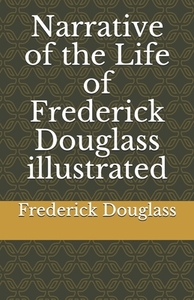You need to sign in or sign up before continuing.
Take a photo of a barcode or cover
Much more entertaining than I expected it would be, and not nearly as grim as Roots, thank goodness (though of course it was stil a pretty brutal story).
challenging
dark
emotional
hopeful
informative
inspiring
reflective
sad
tense
fast-paced
Somehow, I’ve managed to never read Frederick Douglass’s classic account of slavery and freedom, in school or otherwise. It’s a pretty impressive story, if for no other reason than that one senses the greatness of the author. Having read his story, it makes sense that we give Douglass the air of a kind of second generation of Founding Fathers, along with Lincoln. The man speaks in ideals and holds onto his shred of optimism with a death grip.
What I didn’t appreciate until after I finished Jacobs’ account was how different each story was. Having just read Douglass, I was expecting defiance and action. Douglass focused at all times on his desire for freedom and the things that stood in the way of this goal, while Jacobs’ goals are many and her point-of-view as a woman and mother forces a reader to reevaluate what they expect from a slave narrative.
While reading Jacobs’ life story I was often bogged down in the wordy passages detailing her emotions or retelling conversations that seemed a little long and a little fake (the story was marketed to white housewives, basically). With a family and children that she doesn’t want to leave behind, Jacobs seems to suffer most from worries, to such an extent that this often overshadows the external pains of slavery. This was a surprise, but it should not be taken that I mean to cheapen her experience somehow. The result is that, while not as powerful or thoughtful as Douglass, Jacobs gives an account of herself – warts included – that is more human and a story that is more open-ended, not necessarily the best thing for a story, but more honest to real life than a story is.
Rating a book that recounts the lives of real people coming to freedom seems more than a little unseemly, so I will just say that these stories should be known to anyone at all concerned with the American experiment and its continuance or improvement.
What I didn’t appreciate until after I finished Jacobs’ account was how different each story was. Having just read Douglass, I was expecting defiance and action. Douglass focused at all times on his desire for freedom and the things that stood in the way of this goal, while Jacobs’ goals are many and her point-of-view as a woman and mother forces a reader to reevaluate what they expect from a slave narrative.
While reading Jacobs’ life story I was often bogged down in the wordy passages detailing her emotions or retelling conversations that seemed a little long and a little fake (the story was marketed to white housewives, basically). With a family and children that she doesn’t want to leave behind, Jacobs seems to suffer most from worries, to such an extent that this often overshadows the external pains of slavery. This was a surprise, but it should not be taken that I mean to cheapen her experience somehow. The result is that, while not as powerful or thoughtful as Douglass, Jacobs gives an account of herself – warts included – that is more human and a story that is more open-ended, not necessarily the best thing for a story, but more honest to real life than a story is.
Rating a book that recounts the lives of real people coming to freedom seems more than a little unseemly, so I will just say that these stories should be known to anyone at all concerned with the American experiment and its continuance or improvement.
challenging
emotional
reflective
sad
medium-paced
A quick and brutal read, Douglass has a voice so powerful and true it knocks you over at times. His scathing rebuke of the religious hypocrisy in the South rings familiar, even more so in the wake of the shootings in Nashville last month and Ralph Varl this past week. Our refusal to put the safety of the oppressed and weak in our country often feels to be a failure of our current moment. But to see through the eyes of Douglass the sharp contrast between North & South puts into perspective that this tension is nothing new to our country, and the Church's failure to reflect the suffering servanthood of Christ has been constant throughout all Church history.
A short book, read in a few hours, but a powerful one! This has been on my want to read list for awhile and I’m very glad I read it.
informative
inspiring
challenging
dark
emotional
informative
reflective
sad
medium-paced
informative
sad
medium-paced



